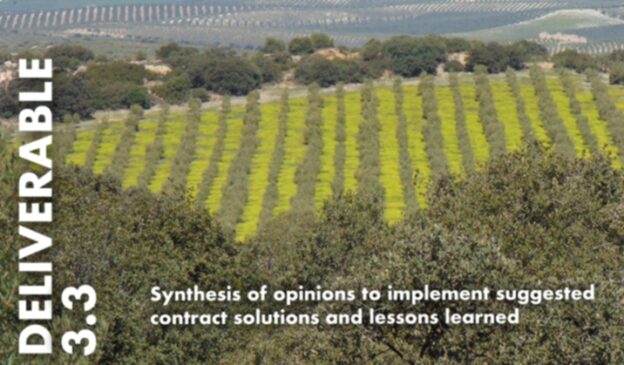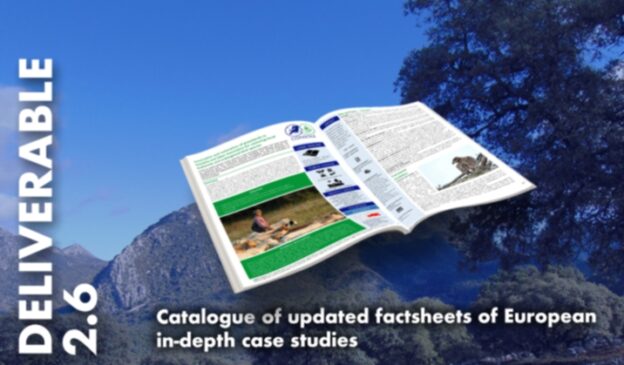Author/ s: Hamunen, K., Haltia, E., Kurttila, M., Leppänen, J., Tarvainen, O., Viitala, E-J. (LUKE)
Contributors:
Andreoli, M., Bartolini, F., Bertolozzi, D., Berzina, I., Bradfield, T., Canaj, E., Cosgrove, M., D’Alberto, R., De Geromino, G., Dupraz, P., Eichhorn, T., Harmanny, K., Hennessy, T., Holden, J., Issanchou, A., Malak-Rawlikowska, A., Nikolov, D., Olivieri, M., Paillard, H., Runge, T., Schaller, L., Schulp, N., Tyllianakis, E., Viaggi, D., Vergamini, D.
Summary
Land managers could be offered diffrent types of contracts to increase provision of agri-environmental climate public goods (AECPGs). CONSOLE project has focus on four novel contrac solutions (result-based contracts, contract solutions fostering collective implementation, value chain-based contract solutions, and land tenure contracts). The aim of this deliverable is gather stakeholders’ views on potential challenges and solutions when implementing novel contract solutions.
According to the results of stakeholder workshops, land managers’ willingness to participate in different contracts types depends on how well the contract type is known. Therefore, continuous information sharing on different types of contracts are important. It is important to raise both land managers’ and extension specialists’ awareness on AECPG provision and the possibilities to combine provision with existing production. Possibilities of hybrid solutions (i.e., combinations of more than one contract type) and participation of private sector need to be studied and developed further.
In result-based contracts sufficient economic compensation is the basic prerequisite for increasing their uptake. Land managers need to have a clear picture of the economic consequences of the contract. Risk of not achieving the result could be reduced with gradual compensation payments and partial pre- remuneration. Defining suitable, science-based monitoring indicators that land managers can influence, and that are easy to monitor, is important. In an ideal situation, the same indicators could be used to measure different agri- environmental benefits (e.g., biodiversity, water, carbon). Self-monitoring could increase land managers’ motivation for result-based contracts.
To increase the uptake of collective contracts, it is important to ensure fair and transparent distribution of compensation between participating land managers. Collective contracts often need a leader or intermediary to gather the land managers together. The private sector has huge potential especially in value chain contracts. To increase the uptake of value chain contracts, there is a need to investigate existing and potential chains, support private organisations to engage, and define fair distribution of benefits, responsibilities, and risks. One of the main issues in land tenure contracts is the lack of available land for rent.
The work carried out in the period has focused on understanding the availability of secondary data and in discussing the role they could have in the project. In particular, attention has been focused on the contribution they could give to WP4 in terms of e.g. cost, that could support model implement.
Moreover, stakeholders were concerned about too strong a power of the landowner that reduces tenants’ willingness to participate.





